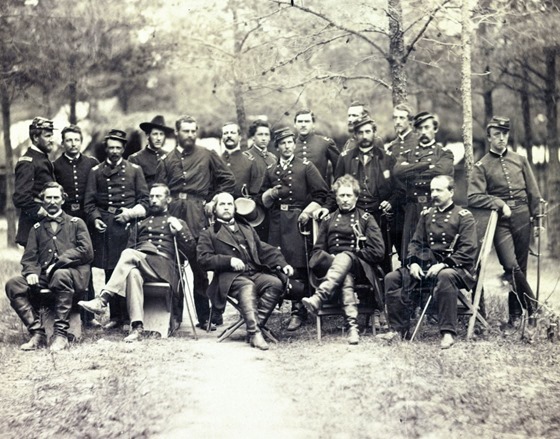7th June (Sunday).—Augusta is a city of 20,000 inhabitants; but its streets being extremely wide, and its houses low, it covers a vast space. No place that I have seen in the Southern States shows so little traces of the war, and it formed a delightful contrast to the war-worn, poverty-stricken, dried-up towns I had lately visited. I went to the Episcopal church, and might almost have fancied myself in England: the ceremonies were exactly the same, and the church was full of well-dressed people.
At 2 P.M. I dined at the house of Mr Carmichael, son-in-law to Bishop Elliott, who told me there were 2000 volunteers in Augusta, regularly drilled and prepared to resist raids. These men were exempted from the conscription, either on account of their age, nationality, or other cause—or had purchased substitutes. At 3 P.M. Mr Carmichael sent me in his buggy to call on Colonel Eains, the superintendent of the Government works here. My principal object in stopping at Augusta was to visit the powder manufactory and arsenal; but, to my disappointment, I discovered that the present wants of the State did not render it necessary to keep these establishments open on Sundays.
I had a long and most interesting conversation with Colonel Rains, who is a very clever, highly-educated, and agreeable officer. He was brought up at West Point, and after a short service in the United States army, he became Professor of Chemistry at the Military College. He was afterwards much engaged in the manufacture of machinery in the Northern States. At the commencement of this war, with his usual perspicacity, President Davis selected Colonel Rains as the most competent person to build and to work the Government factories at Augusta, giving him carte blanche to act as he thought best; and the result has proved the wisdom of the President’s choice. Colonel Pains told me that at the beginning of the troubles, scarcely a grain of gunpowder was manufactured in the whole of the Southern States. The Augusta powder-mills and arsenal were then commenced, and no less than 7000 lb. of powder are now made every day in the powder manufactory. The cost to the Government of making the powder is only four cents a pound. The saltpetre (nine-tenths of which runs the blockade from England) cost formerly seventy-five cents, but has latterly been more expensive. In the construction of the powder-mills, Colonel Rains told me he had been much indebted to a pamphlet by Major Bradley of Waltham Abbey.
At the cannon foundry, one Napoleon 12-pounder is turned out every two days ; but it is hoped very soon that one of these guns may be finished daily. The guns are made of a metal recently invented by the Austrians, and recommended to the Confederate Government by Mr Mason. They are tested by a charge of ten pounds of powder, and by loading them to the muzzle with bolts. Two hundred excellent mechanics are exempted from the conscription, to be employed at the mills. The wonderful speed with which these works have been constructed, their great success, and their immense national value, are convincing proofs of the determined energy of the Southern character, now that it has been roused; and also of the zeal and skill of Colonel Rains. He told me that Augusta had been selected as a site for these works on account of its remoteness from the probable seats of war, of its central position, and of its great facilities of transport; for this city can boast of a navigable river and a canal, besides being situated on a central railroad. Colonel Rains said, that although the Southerners had certainly been hard up for gunpowder at the early part of the war, they were still harder up for percussion caps. An immense number (I forget how many) of these are now made daily in the Government factory at Atlanta.
I left Augusta at 7 P.m. by train for Charleston. My car was much crowded with Yankee prisoners.












